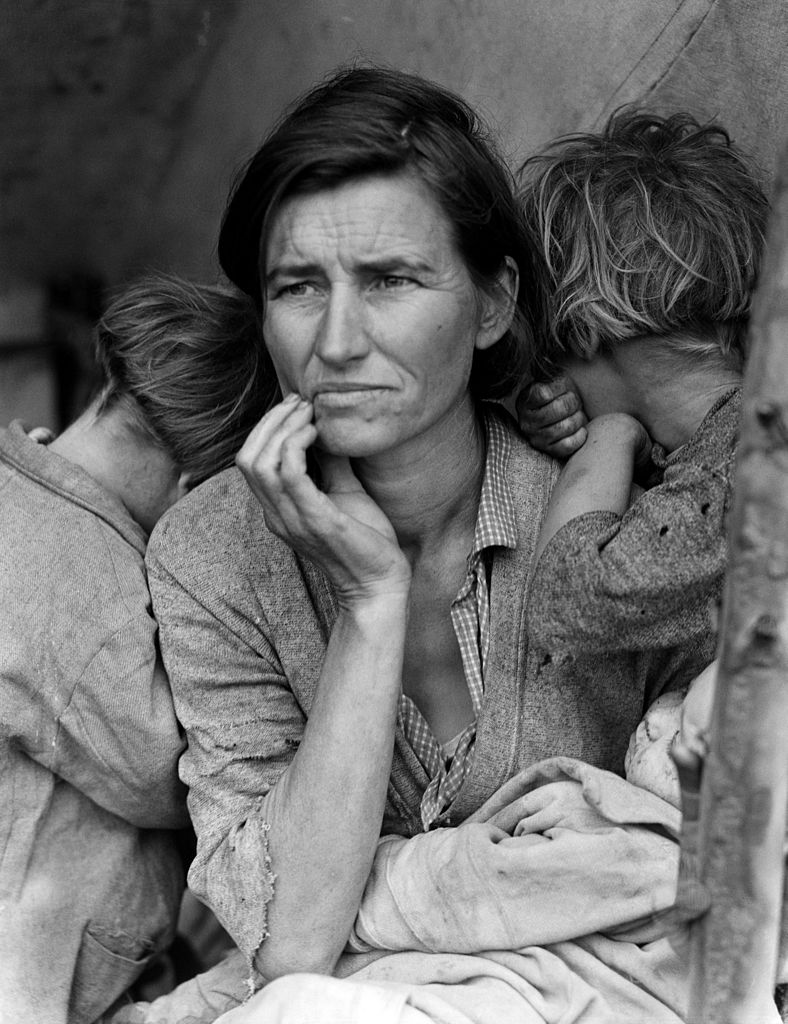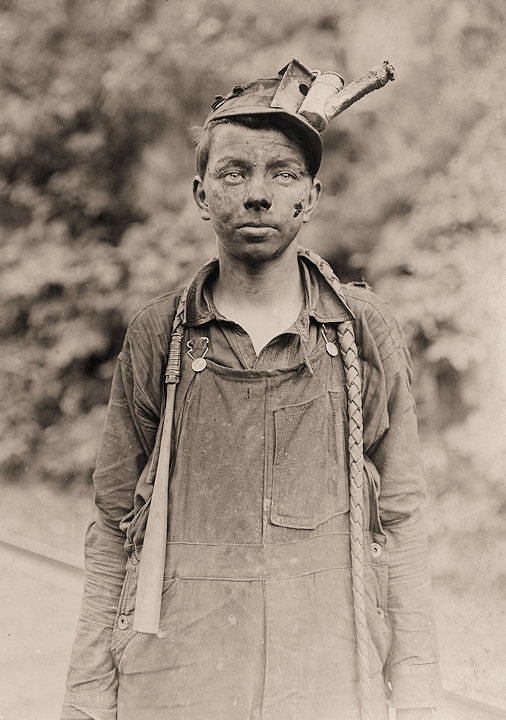
Karl Spitzweg, The Bookworm

Dorothea Lange, Migrant Mother

Lewis Hines, Mine Driver
Introduction to Sociology
Professor Larry Stern
Reading Assignments, Lecture Notes & Web Sites
Unit 8: Poverty & Inequality
Readings:
Macionis, Society: The Basics, chapter 8 ("Social Stratification") & chapter 9 ("Global Stratification")
Sabrina Tavernise, "Disparity in Life Spans of the Rich and the Poor Is Growing," New York Times, February 12, 2016
Barbara Ehrenreich, "Nickel and Dimed" (excerpt)
Peter Kaufman, "Exploitation at Home: Matthew Desmond’s Evicted," Everyday Sociology, June 28, 2016
Karen Sternheimer, "Evictions and the Paradox of Poverty," Everyday Sociology, July 1, 2016
"The Real Budgets of McDonald's Workers" (view the five slides)
“Apple Factories accused of exploiting Chinese workers,” The Observer, April 30, 2011
Jay Livingston, “Is Profit the Ultimate Value? On JP Morgan’s $11 billion fine.”View these brief videos:
"How the Other Half Lives" (click to watch this)
America's Distribution of Wealth (1955)
Wealth Inequality in America
Visit the following Web Sites:
Child Labor in America 1908-1912
Inequality.org (View "Facts" - Pull-Down Tab)
Global Rich ListBetween a Rock and a Hard Place: A History of American Sweatshops, 1820 - present
Co-op America: Sweatshops: Retailer Scorecard
National Center for Children in Poverty
National Coalition for the Homeless
The Samaritan Inn
National Low-Income Housing Coalition - Out of Reach (View data for Texas)
The Hunger Site
America’s Second Harvest______________________________________________________________
Class Discussion
Should a full-time job allow an employee to afford basic necessities? The federal minimum wage in the United States is $7.25 an hour. As seen in this map published by the United States Department of Labor, nineteen of the fifty-one states have higher minimum wages, while nine states have either lower minimum wage laws or none at all. Play the game called Spent. It is a web-based interactive game that forces players to make everyday choices for folks who make the minimum wage, and offers facts about near-poverty labor along the way. How did you do? What does this game illustrate about the openness and access to opportunities provided by our economy.